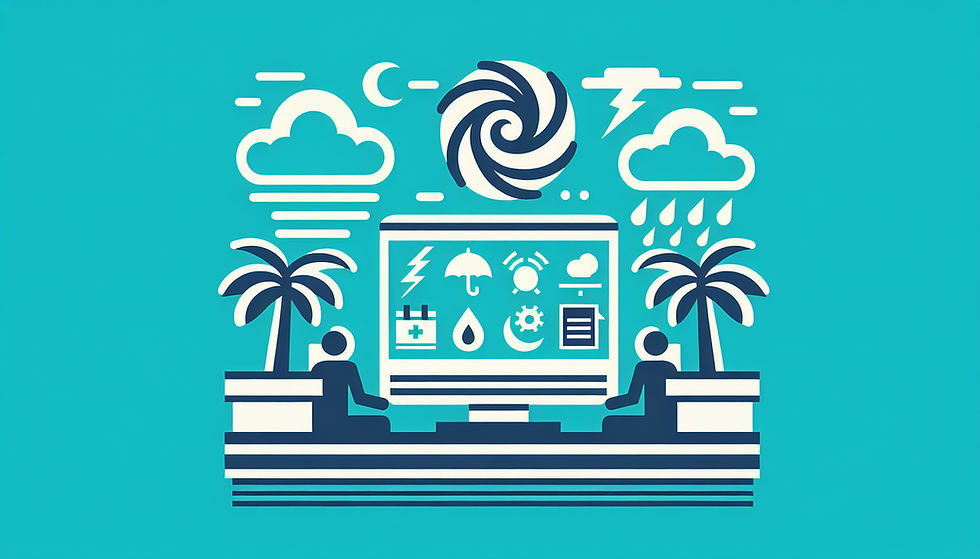
Gaston County’s Office of Emergency Management and Fire Services is closely monitoring the storm path of Tropical Storm Debby, as it makes its way up the coast. The track of the storm is projected to bring it inland through the center of the Carolinas, and Gaston County is urging residents to review flooding preparations.
A flood watch is when conditions are favorable for one to occur.
A flood warning means flooding is either happening or will happen shortly.
Residents are encouraged to follow Gaston County Government social media and updates at GastonGov.com for important weather information. In addition, residents can sign up for free emergency notifications through the Alert Gaston program, which can be found on the Emergency Management and Fire Services page of GastonGov.com.
Some areas in Gaston County are more prone than others to flooding, including many areas along the South Fork River, such as Riverside Drive, Goat Island, Dallas Road and others.
Tips to follow in preparation for heavy rain/flood:
Know your flood risk
Make a flood emergency plan
Build or restock your emergency preparedness kit, including a flashlight, batteries, cash, and first aid supplies
Familiarize yourself with local emergency plans. Know where to go and how to get there should you need to get to higher ground, the highest level of a building, or to evacuate
Bring in outdoor furniture and move important indoor items to the highest possible floor. This will help protect them from flood damage
Stay tuned to your phone alerts, TV, or radio for weather updates, emergency instructions, or evacuation orders
Disconnect electrical appliances
Tips to follow in the event of a flood:
Turn around, Don’t drown!
Move immediately to higher ground or stay on high ground. Evacuate if directed.
Avoid walking or driving through flood waters. Six inches of moving water can knock you down and one foot of water can sweep your vehicle away. If water surrounds your car but is not moving, abandon the car and seek higher ground
Stay out of floodwaters which could contain: downed power lines and trees, wild animals like snakes, human and livestock waste, household, medical or industrial hazardous waste
Avoid any room where water is covering electrical outlets or you hear noises such as buzzing or crackling. Do not touch electrical equipment if you are wet or standing in water. The water may be electrified
Avoid camping or parking along any creek, rivers, or streams, as these places flood first and are more susceptible to flash flooding
Tips to follow after a flood:
After a flood, return home only when authorities say it is safe
Be aware of areas where floodwaters have receded and watch out for debris. Floodwaters often erode roads and walkways
Do not attempt to drive through areas still flooded, and avoid standing water as it may be electrically charged from underground or downed power lines
Photograph damage to your property for insurance purposes
